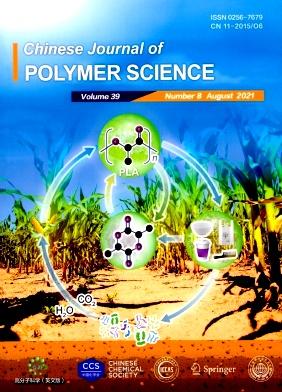Influence of Bromo-Aromatic Substrates on Direct Arylation of EDOTs toward Higher Molecular Conjugate Polymer
Abstract
The influence of the electronic and steric properties of bromoaromatic substrates on direct arylation polymerization for synthesizing high-molecular-weight conjugated polymers was investigated through a combination of experiments and calculations. Bromo-aromatic substrates with electron-withdrawing fluoro substituents exhibited higher yields and degrees of polymerization under PPh3-assisted conditions compared to those with electron-donating or bulky methyl substituents. Additionally, excessive steric hindrance at ortho-sites or overly electron-deficient dibromoaromatic substrates leads to reaction inactivation. Calculations indicated that electron-withdrawing substituents enhanced the electrophilicity of arylpalladium-PPh3 intermediates, facilitating the activation of electron-rich arylative substrates and promoting polymer growth. Furthermore, steric hindrance from the substituents can influence the preferred reaction pathway, thereby increasing the real reaction barriers. Both experimental and computational results suggest that bromoaromatic substrates with optimized electron-deficient characteristics significantly improve monomer conversion and polymerization efficiency with n-hexylmethylether-substituted EDOT. These findings clarify how the electronic and steric properties of bromo-aromatic substrates affect EDOT derivative activation and are expected to aid in optimizing the polymerization conditions for the preparation of high-molecular-weight conjugated polymers.

 求助内容:
求助内容: 应助结果提醒方式:
应助结果提醒方式:


